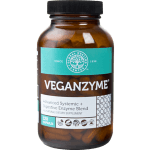Digestive disorders are becoming more prevalent in other countries as westernized society spreads. Constipation is a serious health concern and, along with other digestive ailments, affects at least 1 out of 5 people in America. Medically, constipation is defined as the passage of small amounts of hard, dry bowel movements, usually fewer than three times per week. The reality, however, is that if you are not having a minimum of 2 soft, easy to pass bowel movements daily then you are constipated and waste is accumulating in your system. Effects […]






